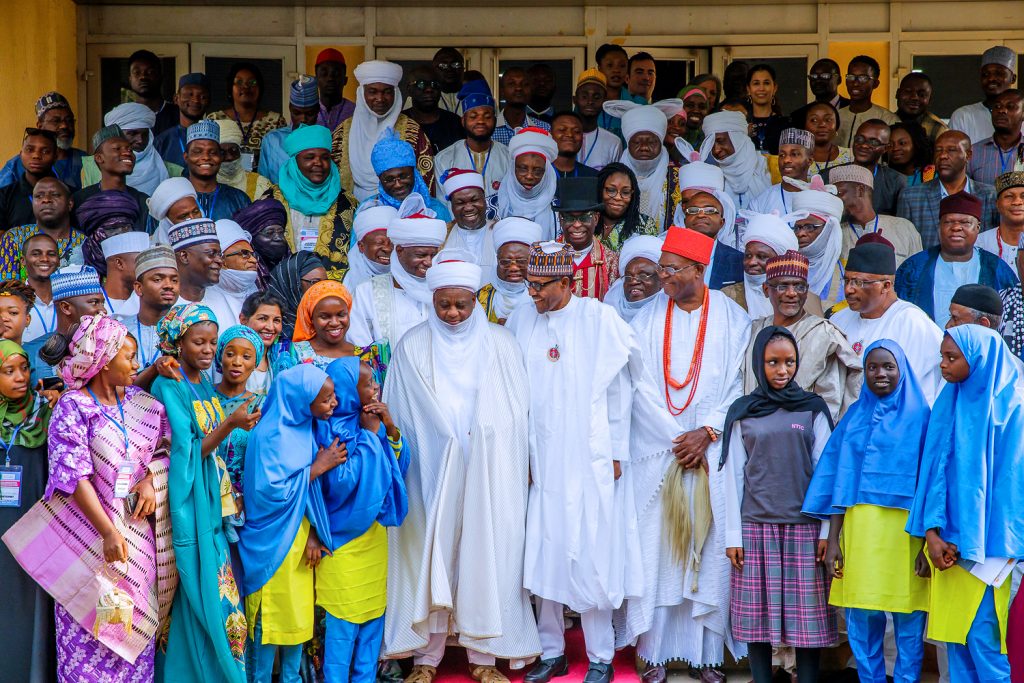Engaging Religious & Traditional Leaders Is Crucial If We Are To Achieve SDG5 By 2030

The powerful influence that religious leaders and customary chiefs hold over their people has not been lost on many political leaders, who have deployed charm offensives to woo these leaders and their followers for political gain, notably in the run up to elections. Another set of charm offensives must now be deployed by women’s rights groups and activists in order to engage these powerful stakeholders in the planet 50-50 agenda if we are to achieve a world of equal opportunities for every girl and woman by 2030.
According to the United Nations Educational, Scientific and Cultural Organization (UNESCO), more than half of Africa’s 263 million out-of-school children and adolescents are girls. More and more governments are adopting free basic education, but to take equal advantage of this promise, we need to enlist religious leaders and traditional rulers to advocate for sending girls to school and help break down negative norms in cultures that tend to keep girls at home as domestic workers.
In addition to hindering socio-economic growth and development, preventing girls from attending school and is a crucial human rights issue, a glaring sign of discrimination against the youngest and most vulnerable members of our communities, and an obstacle to justice and equality. In Africa, despite decades of advocacy campaigns to promote girls’ education, progress towards secondary school completion has stalled, resulting in a large, negative impact on maternal and child health.
In rural communities, poverty is still one of the greatest obstacles to girls’ education because poor families lack the necessary resources to send their daughters to school. This leads to a miserable, often deadly cycle of female genital mutilation, early child marriage, catastrophic teen pregnancy illnesses, high childbirth mortality and, of course, never-ending poverty. In addition to the obstacles of poverty and gender-biased cultural and social norms, a lack of decent school infrastructure (classrooms, desks, benches, toilet facilities) contributes to the problem of having millions of girls missing out on school and lagging behind in their education.
Meanwhile, research makes clear that educating girls provides them and their communities with long-term social and economic benefits since educated girls grow up better equipped to make well-informed decisions about their bodies, about whom and when to marry, and about family planning. Most importantly, they become strong advocates, powerful role models, and agents of change in their communities.
Recognizing the critical value to society of educating girls, the Sultan of Sokoto (in Nigeria) established the Sultan Foundation for Peace and Development, which convened for the first time in January 2019. The event was presided over by Nigeria’s head of State, Mohammad Buhari, and was attended by many dignitaries, including Alhaji Muhammadu Sanusi, the Emir of Kano, in Nigeria and Ronald Mutebi, the Kabaka of Buganda, in Uganda. In all, traditional and religious leaders from 20 countries gathered together to discuss ways to get girls to school and keep them in school to achieve a complete secondary education.
The forum concluded with a public call to action for African religious and traditional leaders to take the lead to help ensure that all girls in their communities complete secondary education. At Women’s Economic Imperative (WEI), we salute this ambitious and urgently needed endeavor and we stand ready to help.
As the world celebrates this year’s International Women’s Day — whose theme is “Think equal, build smart, innovate for change” — all stakeholders must resolve to work to find innovative ways to engage more men and young boys in the push to advance gender equality and the empowerment of women and girls.
Traditional and religious leaders have a particularly important role to play, given the powerful influence they hold over both the general population and the political decision-makers. By leading the effort to break down negative norms that currently leave half of the population consigned to roles and circumstances unjustly dictated by their gender, these leaders can inspire countless others to act and effect positive change. They can help define the right path for future generations, making the world a better place for all.
In order to meet the goal of Planet 50-50, as defined in the Sustainable Development Goals (SDGs), by 2030, we urgently need strong leadership from faith leaders and traditional chiefs. We need them to take action to address harmful cultural practices and all forms of violence against women and girls. It is time for men to work in close partnership with women to advance gender equality across all spheres of society.
This is a pivotal moment for Africa’s future, for our children, and for our traditional and faith leaders. We need our leaders to speak up now, to encourage everyone to respect the human rights of girls and women and work collectively to raise educational standards for all. This is a quest for justice, and the futures of millions of children, the majority of them girls, are at stake.
By Amadou Mahtar Ba, WEI Board Chairman & Executive Chairman AllAfrica; Joannes Yimbesalu, WEI Board Member; & Margo Thomas, WEI President & CEO
